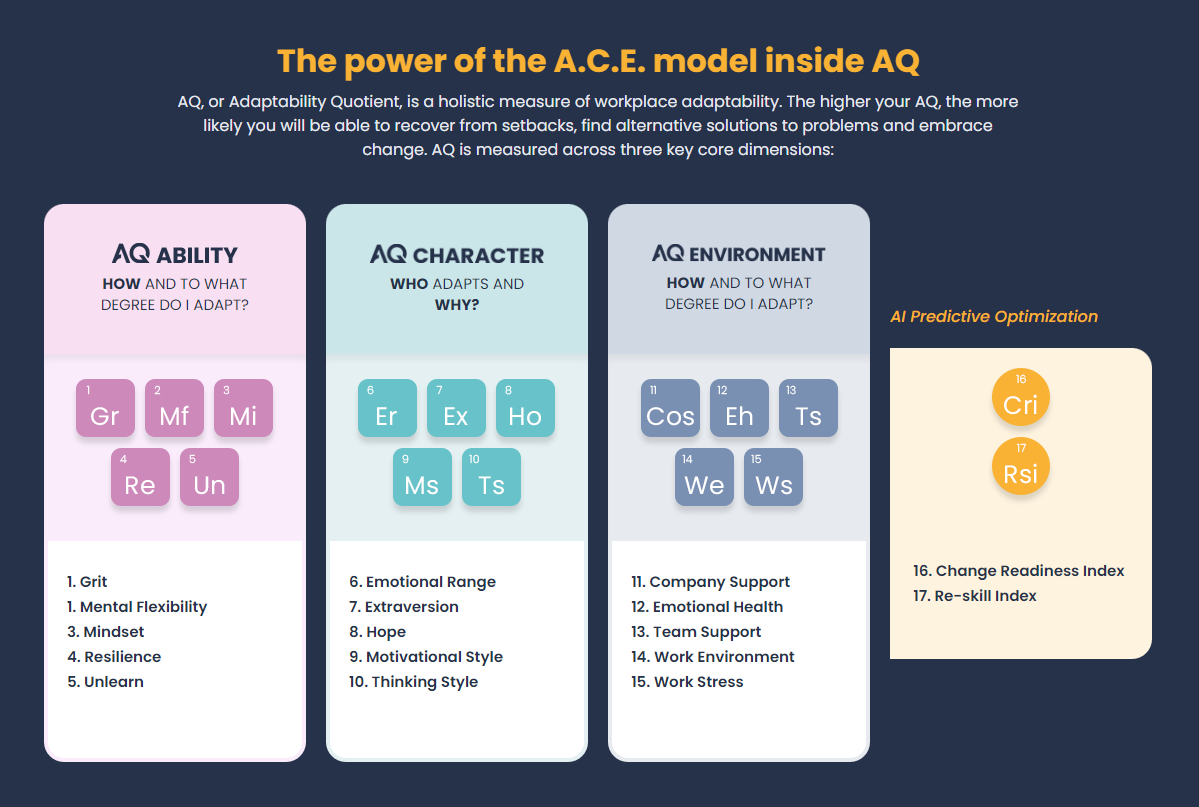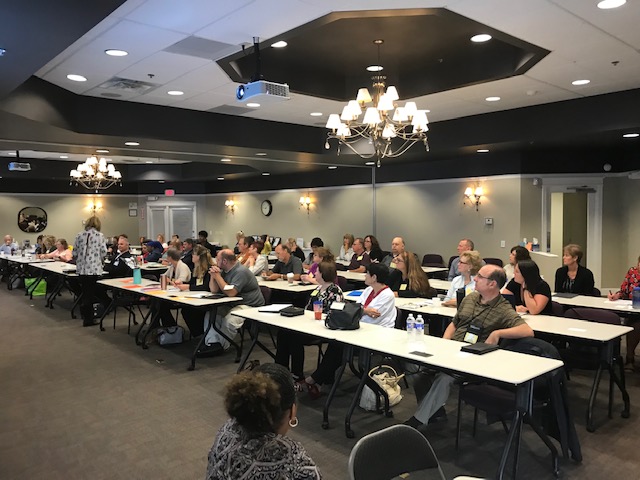Thriving Amid Change: The Power of Adaptability in Today's Workplace

Change surrounds us; intentional, empathic, and visionary leaders must learn to decode the mixed mess.
It is estimated that 40% of jobs today will not exist in 10 years. More companies will be created in the coming 10 years than have existed in the past 100 years. Business forecasters believe that the rate of change experienced over the past 100 years is roughly equal to the acceleration we can expect in the coming 10 years. Harvard Business Review authors Martin Reeves and Michael Deimler call adaptability the "new competitive advantage." Its impact on the future of organizations cannot be underestimated.
Adaptability is Required when Crafting Vision
The visionary leader is a proven adaptor, a champion of the pivot. Adaptability is the ability to adjust your approach or actions in response to changes in your external environment, and it is a valuable skill for individuals and for businesses. The challenge with strategic adaptability is that you essentially have to plan for the unexpected.
Employers have begun to evaluate the qualities essential to adaptability when hiring new staff. The skill is increasingly included in job descriptions due to its importance for growth and development.
An employee who demonstrates adaptability in the workplace is flexible and can respond effectively to their working conditions, even when things are unplanned. Adaptable employees typically work well both on their own and with team members.
In my recent AQai Adaptability Certification, we explored Thinking Styles as related to how we make sense of the world. How we view, think, and process what happens to us in the world.
As people with a high AQ (Adaptability Quotient) go through their careers, they become ambidextrous in the way they think. They may become more capable in general. Under high pressure and stress, our deepest values show up.
When required to react rapidly, we may shift our thinking style. Do you focus on the big picture or the details when change happens?
Prepare for the Unknown with Sound Planning Strategies
Contrary to what you may expect, to truly build adaptable businesses, you need to be prepared.
"Preparing for the unknown requires careful consideration of everything that can and will go wrong in business. Even then, there's no guarantee that things will work out as planned, but placing adaptability at the forefront can help an organization survive."
-Forbes Business Development Council
In a 2021 article, Forbes Business Development Council described many facets related to building adaptable businesses; Forbes recommended 15 best practices--I've included a few excerpts from the article below. I believe that these items, in particular, encompass the virtues of a visionary leader who is ready for change.
Hire Adaptable People
To ensure your business is adaptable to sudden changes, hire people with the traits and skills that will make them more likely to be adaptable. Creativity, problem-solving skills, and curiosity are just a few traits to look for in the people you hire. Having a team full of creative, resilient problem solvers will ensure your company can adapt to anything. - Lauren Mieli, Prudent Pet Insurance
Encourage Upskilling
What transpired in 2020 taught us that a willingness to adapt and pivot is vital. As leaders, encouraging upskilling remains critical in the face of automation. Businesses improve their adaptability by identifying growth opportunities and building a flexible workforce that's motivated to learn. The future of work is always evolving. It takes commitment and follow-through to prepare for change. - Sue Bhatia, Rose International
Over-Communicate
The key is over-communication. Over-communicate with your customers, vendors, strategic partners, and employees. Constantly ask questions about what is going well, what is not going well, and how you can be more helpful or add more value. You can use this over-communication key when there are sudden changes to unlock new opportunities and adapt accordingly. - Matthew Rolnick, Yaymaker
Make Plans In Advance
Plan for the unknown "why." Plan early on to adapt to the sudden change and determine why it's required to serve the higher good. In your plan, if you have the space for the unknown, you are better equipped to handle that sudden change. A "solution-focused" employee base is important to address sudden changes, so cultivating this culture is the most important thing. - Dhiraj Chhabra, BuzzClan
Be Open-Minded
Businesses can adapt with the help of open-minded people on the team, creating an open-minded business. The last year has shown that no company can be ensured against sudden changes. But if your customer's needs are your primary concern, you can find a way to satisfy them anyway. You just need to listen, watch and not be afraid to go down unbeaten paths with high competence and critical thinking. - Leonid Kozlov, RocketData
Learn How To Intentionally Pivot
We should all learn to intentionally pivot more often and accept making mistakes. We need to learn how to implement changes with imperfect knowledge and make more decisions with more ambiguity. Most managers were trained to fully analyze options, including financial models and a SWOT analysis. That will never work with disruptions. Companies should have a rapid pivot decision model. - Tamas Hevizi, Automation Anywhere
Forbes Business Development Council. (2021, July 21). 15 Strategic Ways to Ensure Your Business is Adaptable. Forbes. https://www.forbes.com/sites/forbesbusinessdevelopmentcouncil/2021/07/21/15-strategic-ways-to-ensure-your-business-is-adaptable)
To Vision is to Position
Hopefully through all these details, you can see that it is actually vision which is the key to unlock the ability to position a company, team, and customer for a win. To be static without vision is to be again rudderless in heavy seas, and your outcome will most likely be negative.
However, having a vision and working towards that vision is critical for success. If the vision requires course correction, the right team will optimize success by doing the right things in the right order. The empowered and engaged team will find a way to succeed. It is not on the visionary leaders' back alone.
To lack direction is to fail; indecision guarantees failure. The team is stuck, the company has no depth and capacity, and the customer suffers while abandoning the company. Failure.
So, how do you become more adaptable? Vision is the name of the game. Courage is required to swim against the current. But, when you do the work and are prepared, it can be an invigorating swim!




